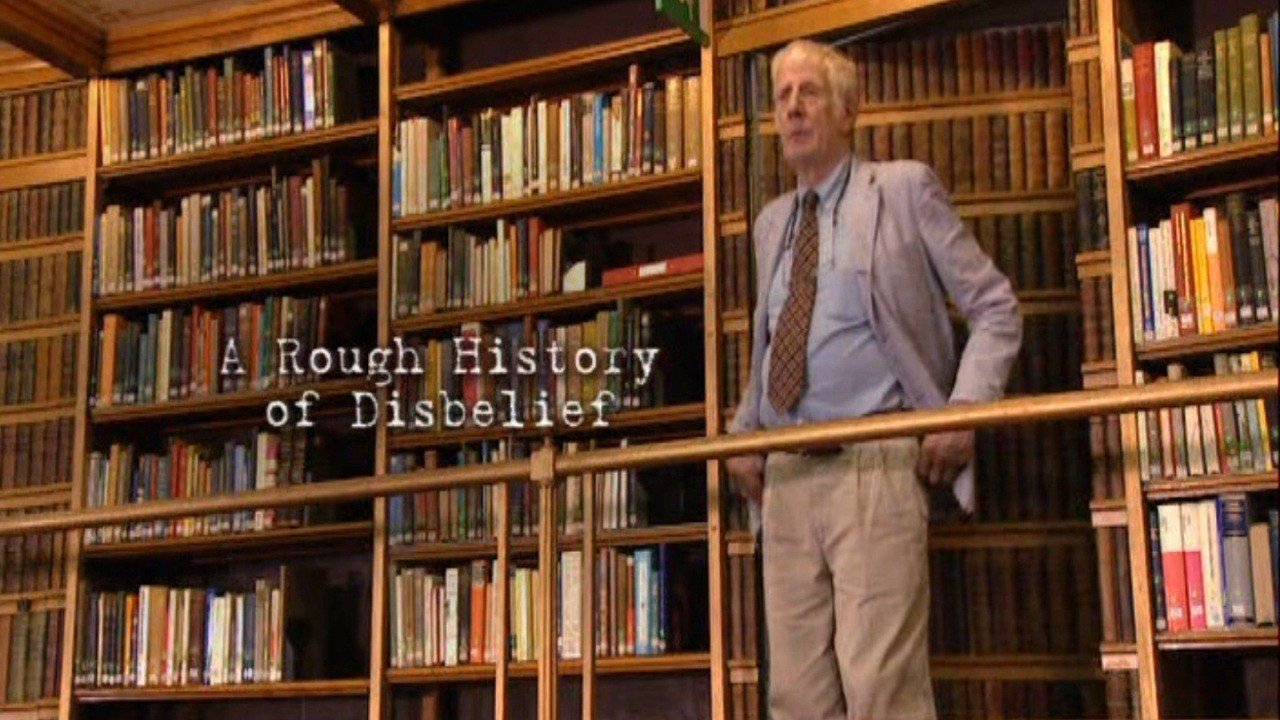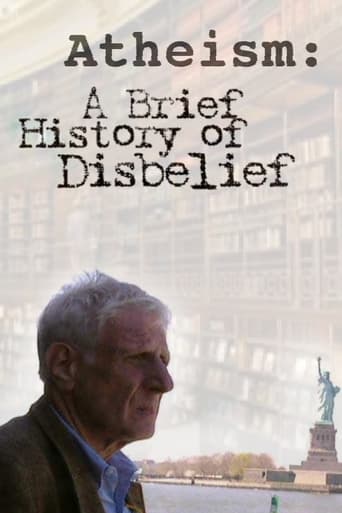

Part one of Jonathan Miller's documentary, A Rough History of Disbelief, aims to expose atheism's past and explore the reasoning behind it with help from Greek philosophers such as Epicurus to Sigmund Freud. Even though Miller's voice is droning at times, I still managed to remain focused because of the interesting content and although the subject matter could potentially be quite controversial, Miller narrates the documentary without putting any religion on the spot. Theism, anti-theism, and atheism are all discussed and are used as stepping- stones to guide the audience through how atheism first came about as a tool used by those in positions of power to what it is today. I liked that although this documentary discusses religion along side atheism, it does not go out and attempt to change peoples' beliefs. Instead, it's obvious that Miller's goal was to introduce a fresh new way of looking at atheism by walking the audience through his own beliefs while interweaving it with concepts thought of by past and current philosophers along with concepts taught by the five major religions. Ultimately, I thought that Jonathan Miller successfully presents a rational and respectful story of what atheism is and I learned a lot about how it came about and how it has changed over time.
... View MoreI've watched this documentary several times over the past few years, which is a testament to it's quality. Miller's respect for both the subject and the intelligence of his audience creates a refreshing documentary. A rough history of disbelief does not use visual gimmickry to keep your attention, instead the series tells the story of the history of atheism from the time of the Greeks to the present today and explains concepts of theism (belief in a god/s), atheism and anti-theism (objection to theism) in a thorough way through the writings of historical figures and the evolution of ideas.Whether you are a theist, atheist or apatheist, I strongly recommend this documentary as a way of accurately understanding what atheism is, what has caused it, attitudes towards it and how it has manifested over time.
... View MoreTruth is absolute. It is not based on what someone thinks or feels about something which is what these people are doing. They do not have any facts that can validate their personal atheistic beliefs. They are simply choosing to not believe there is a God, or Creator as you could call Him, despite the infinite amount of evidence that proves there is a Creator. Whatever claims these people have in an attempt to validate their atheism is completely invalidated when compared to the truth of everything. I have listened to both view points and have seen the evidence that there is a creator and the so-called evidence that there is not a creator. If anything, science (which word means knowledge) can only prove there has to be a creator of mankind. If one were a true scientist, one that studies facts honestly and purely, then they would have to come to the point that there is too much evidence to prove there is a creator. That is why I believe that these people are not true scientists because they believe whatever they want to believe rather than believing the truth. At some point they made a decision to not let themselves accept the evidence for what it really is and instead just keep lying to themselves. Apart from my own personal experiences with God, I have seen plenty of scientific resources that can easily invalidate any of these claims that attempt to validate atheism in any way. One of these resources, for example, is a film called The Case For A Creator by Lee Strobel. He is a former atheist that came to a believe in God after honestly studying the scientific evidence for the existence of a creator. I myself am a former agnostic that eventually came to a belief in God and later I became a Christian. But, my point in writing this is that I want people to know that there is substantial evidence for a creator and if you take the time to look at the evidence, if you are looking for some scientific evidence that is, then there are resources out there. You must remember that just because someone claims something and just because they say they have some evidence and they try to explain it, that does not mean that they are correct. Anyone can come up with evidence to justify their claims, but it does not mean that their evidence is actually really evidence when you actually look at it truthfully without an agenda.The fool says in his heart there is no God. (Psalm 14.1) There is a way which seems right to a man, but eventually it ends in death. (Proverbs 14.12) Have you met a person who thinks he is wise? There is more hope for a fool than for him. (Proverbs 26.12)
... View MoreThis was well-done, and very well-put overall. I felt the last episode did a disservice to the Russian Revolution and Soviet Union by conflating communism with the horrors of Stalinism (there is so much more to the history than Stalin), though I certainly agree that under Stalin, too many people died. However, the atheism of the Soviet Union had nothing to do with it- consider that under Stalin a lot of the Churches were re-built, for instance.In any event, the use of quotes from the Greek Philosophers all the way through and beyond Thomas Paine and Freud were masterfully done by the actor voicing them. I think that this is a valuable, though not perfect, series on the subject. It is not recriminatory, it is informative, and it is both personal and universal in its scope. Jonathan Miller interweaves his own atheism and the history thereof into the history of the world's very well, indeed.This is a calmly presented and very interesting document. It also will expand your reading list quite a bit.
... View More